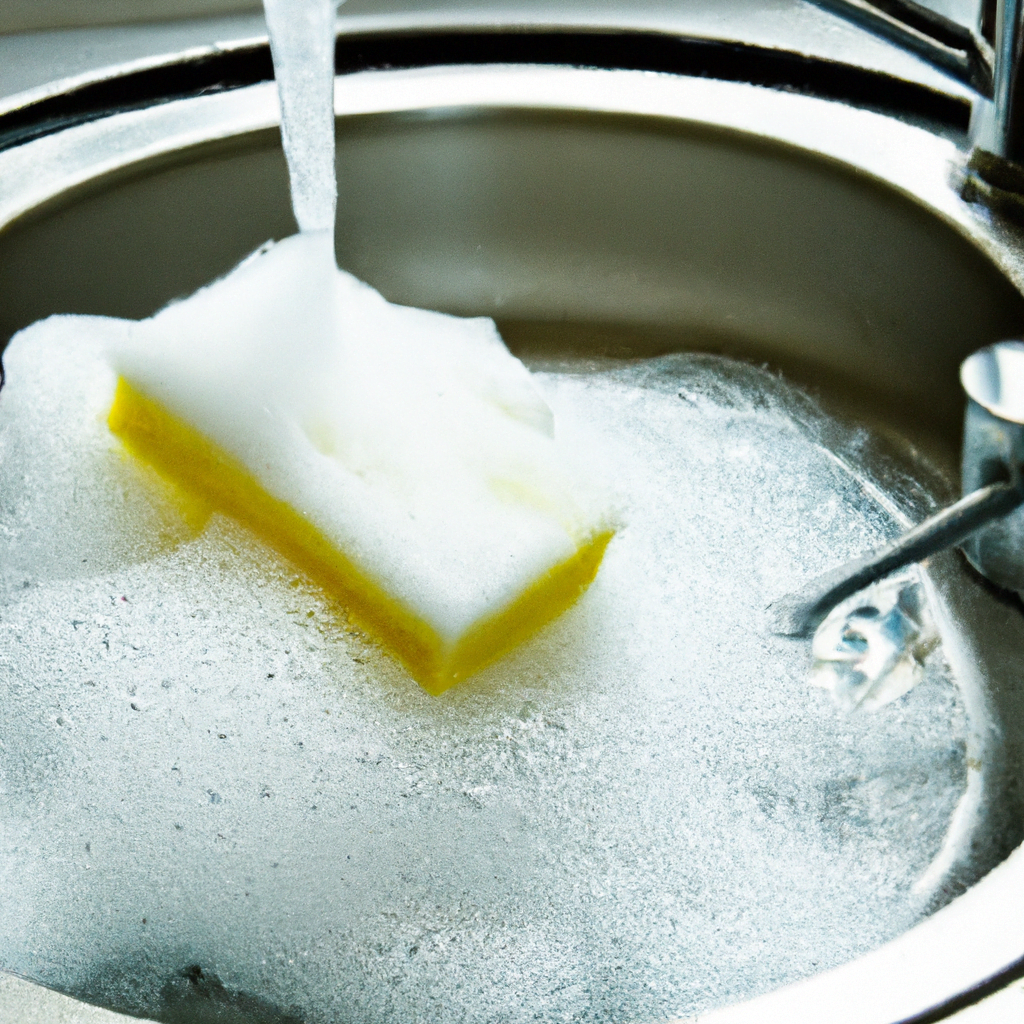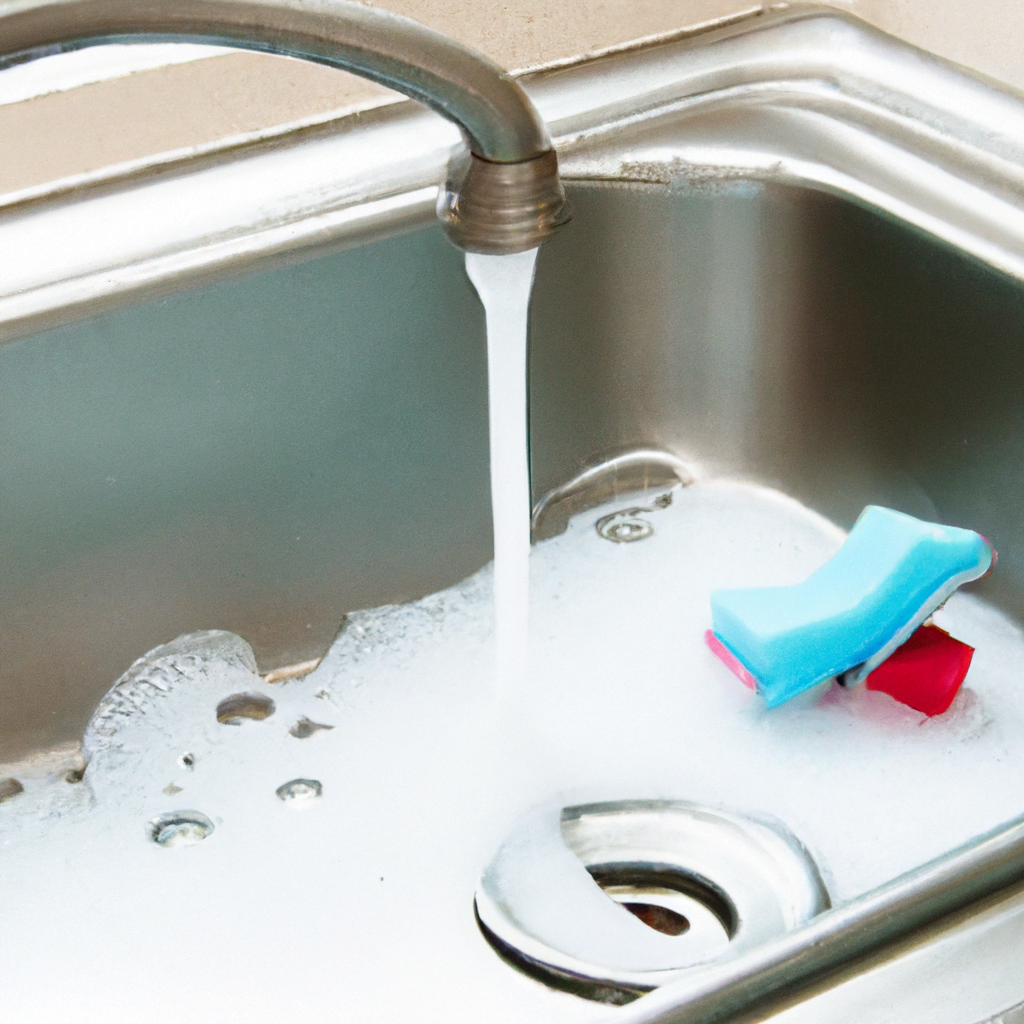Ever been caught up in a messy situation with a clogged drain? With “Homemade Drain Cleaner,” your troubles will be a thing of the past. No need to panic or call an expensive plumber. This handy guide shows you the secrets of concocting your very own effective drain cleaner right from your kitchen essentials. Say goodbye to stubborn clogs and say hello to flawless, smooth flowing drains in your home. Let’s get you in on the trick of the trade by unlocking the wonders of a homemade drain cleaner.
Why Choose A Homemade Drain Cleaner
Deciding to switch to a homemade drain cleaner can offer you a plethora of benefits. Not only is it an incredibly practical and efficient solution, but it’s also earth-friendly and wallet-friendly. Below are some compelling reasons why you should consider making your homemade drain cleaner.
Safe for your pipes
One of the main advantages of opting for a homemade drain cleaner is that it is safe for your pipes. Traditional drain cleaners are laden with harsh chemicals that can corrode your pipes over time, leading to leaks and expensive plumbing repairs. On the other hand, homemade drain cleaners utilize natural ingredients that do not harm your pipes, prolonging their lifespan.
Natural ingredients
Homemade drain cleaners are made from natural ingredients, meaning you’re not introducing a cocktail of dangerous chemicals into your drainage system. This not only protects your pipes but also reduces the risk of harm to the environment when these chemicals are eventually washed away.
Easily sourced ingredients
Another great benefit is that the ingredients used in homemade drain cleaners can be found in your kitchen pantry. From baking soda and vinegar to salt and dish soap, you can quickly whip up a drain cleaner with items you already have at home.
Cost-effective
Last but not least, creating a homemade drain cleaner can save you money. Commercial drain cleaners aren’t cheap, and costs can add up over time. However, since you most likely already own the ingredients for a homemade version, you’d be cutting down on unnecessary expenditure.
Understanding How Drains Get Clogged
Before delving into how to create and use a homemade drain cleaner, it’s important to understand what causes drains to get clogged in the first place.
Food particles
Food particles are one of the leading causes of clogged drains, specifically in the kitchen sink. They can stick to the sides of the pipes and accumulate over time, leading to a blockage.
Hair and skin debris
Hair and skin debris can also cause a drain to clog, particularly in the bathroom. They can intertwine and clump together, often trapping other particles and leading to a blockage.
Soap and detergent residue
Soap and detergent residue can build up in the pipes over time. This is particularly common in areas with hard water, which makes soap less likely to dissolve properly.
Oil and grease
Oil and grease are notorious for causing clogged drains. They solidify as they cool down and can stick to the sides of the pipes, causing a blockage.
Mineral build-up
In areas with hard water, minerals can accumulate in the pipes over time, reducing water flow and eventually leading to a blockage.

Safety Precautions When Mixing Homemade Drain Cleaners
While homemade drain cleaners are safer than commercial ones, it’s still important to take certain precautions when mixing and using them.
Wear protective clothing
Firstly, always wear protective clothing, such as gloves and eye protection. Even natural ingredients can cause irritation if they come into contact with your skin or eyes.
Avoid mixing dangerous chemicals
Never mix different chemicals, especially if you’re unsure of their reactions with each other. Some combinations can produce harmful gases or cause explosions. For example, always avoid mixing vinegar (an acid) and bleach (a base) as it produces toxic chlorine gas.
Safe disposal of unused mixtures
If you’ve mixed more than you need, ensure you dispose of the leftovers safely. Although homemade drain cleaners are safer for the environment, pouring large amounts can still have a negative impact.
Keep out of reach from children and pets
Finally, like with any household cleaner, ensure your homemade drain cleaner is kept out of reach from children and pets to avoid accidental ingestion.
Homemade Drain Cleaner Recipes
With safety concerns addressed, let’s now explore some simple recipes for homemade drain cleaners.
Baking soda and vinegar solution
The most popular and effective homemade drain cleaner involves mixing baking soda and vinegar. This combination results in a fizzy reaction that can break up clogs in your drain.
Salt and baking soda mixture
Another effective recipe involves mixing salt and baking soda, which may work better on tougher clogs. The abrasiveness of the salt combined with the cleaning power of baking soda can effectively scrub and dislodge blockages.
Dish soap and hot water
For greasy clogs, try a mixture of dish soap and hot water. The dish soap can help break down the grease, while the hot water washes it away.

Step-By-Step Guide to Using Homemade Drain Cleaner
Using a homemade drain cleaner is simple and straightforward.
Prepare the drain
Begin by removing any visible debris from your drain. This will make it easier for the cleaner to reach and dissolve the clog.
Pour the homemade drain cleaner
Next, carefully pour your homemade cleaner into the drain. Ensure that it is poured directly into the drain and not onto any surrounding surfaces to avoid unnecessary clean-up.
Flush with hot water
Wait for about 15-20 minutes to let the cleaner do its job, then flush the drain with hot water. The heat aids in dissolving the clog and pushing it down the pipe.
Test the drain flow
Finally, check to see if the water is now draining properly. If not, you might need to repeat the process, or in the case of severe clogs, consider seeking professional help.
Maintaining a Clean Drain Using Homemade Solutions
Regular maintenance can prevent clogs from forming in the first place.
Regular cleaning schedule
Establish a regular drain cleaning schedule. Monthly cleaning can help break up smaller clogs before they become problematic.
Mindful of what goes down the drain
Be conscious of what goes down your drain. Avoid allowing food scraps, hair, and oil to go down the drain whenever possible.
Use of drain strainers
Drain strainers can help catch debris that may cause clogs. Cleaning them regularly is crucial in maintaining a healthy drainage system.
Regular flushing with homemade cleaner
Periodically flushing your drains with a homemade cleaner can help keep your pipes clear and clog-free.
Troublesome Drains and Deeper Clogs
While homemade drain cleaners work great for simple clogs, some situations might require additional measures or professional intervention.
Identifying the problem
If your drains are repeatedly getting clogged, it may be an indication of a larger problem such as a tree root intrusion or a sewer line issue.
Dealing with stubborn clogs
Stubborn clogs that persist even after using homemade drain cleaners might need a plumbing snake or a power auger— tools that can reach deep into the pipe to break up the clog.
When to call a professional
When all else fails, don’t hesitate to call in a professional. Persistent clogs might be indicative of a more severe plumbing issue.
Preventive measures
The best strategy is always prevention. Regularly cleaning your drains and being mindful of what goes down them can help avoid severe clogs.
Benefits of Regular Use of Homemade Drain Cleaners
Using homemade drain cleaners regularly doesn’t just maintain clear drains; it also brings about a series of benefits.
Preserve the lifespan of your pipes
Homemade drain cleaners are gentle on your pipes, helping to preserve their lifespan. This can save you from costly repairs and replacements in the future.
Environmentally friendly
Natural ingredients are less harmful to both your sewage system and the broader environment, making homemade drain cleaners a more eco-friendly choice.
Cost savings
Homemade drain cleaners can save you money in two ways: they’re cheaper to make, and they can help you avoid expensive plumbing repairs.
Less reliance on harmful chemicals
By opting for homemade cleaners, you’re also reducing your reliance on commercial cleaners, which are often filled with harmful chemicals. This makes your home safer, particularly if you have children or pets.
Common Mistakes to Avoid When Using Homemade Drain Cleaners
To ensure the effectiveness of your homemade drain cleaner, make sure to avoid these common mistakes.
Overuse of the cleaner
Although homemade cleaners are gentler on pipes, overuse can still cause wear and tear over. Use only as needed and keep up with regular maintenance to prevent clogs.
Using on completely blocked drains
Homemade cleaners are best for partial clogs. For complete blockages, you might need to resort to manual removal or professional help.
Neglecting to rinse after use
Always rinse with plenty of hot water after using a homemade cleaner to fully remove the clog and the cleaner residue.
Ignoring underlying plumbing issues
Finally, don’t ignore persistent issues. Recurring clogs could be a sign of a more serious plumbing problem that needs professional attention.
Additional Uses for Homemade Drain Cleaners
Apart from unclogging drains, homemade drain cleaners can also be used in a few other ways around the house.
Cleaning toilet bowls
Pour a mixture of baking soda and vinegar into your toilet bowl, let it sit for a few minutes, then scrub with a toilet brush for a sparkling clean toilet.
Unclogging bathroom sink
The same drain cleaning solution can be used to unclog a bathroom sink, saving you from slow or non-draining sinks.
Cleaning household surfaces
Mixtures like baking soda and vinegar can also be used to clean and disinfect various household surfaces.
General household deodorizing
Natural ingredients like baking soda and vinegar are great for neutralizing odors, making them perfect for freshening up your home.
In conclusion, homemade drain cleaners are a safe, effective, and cost-efficient way to maintain your plumbing system. They’re easy to make and use, and with regular use, you can drastically reduce the risk of troublesome clogs. More importantly, you’re choosing an environmentally friendly option that is safer for your home and the planet.
